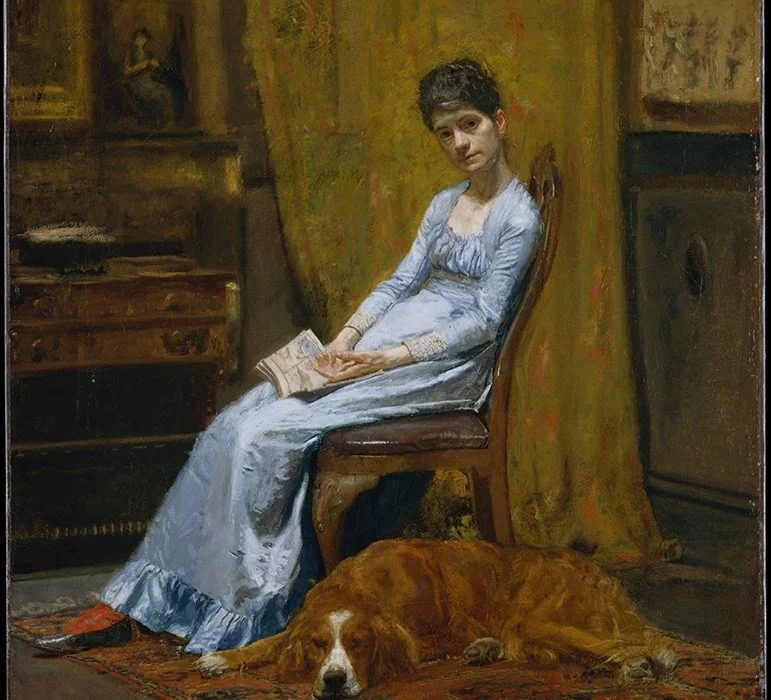Relationships • Finding Love
What We Truly Long for in Love
What is it we really hope for and crave in love? One suggestion – deceptively simple to state but hugely hard to unpack, let alone register and find – is this: to be properly seen and properly known.
What we long for isn’t, in the end, to be thought ‘lovely’ or ‘clever’ or ‘beautiful’ (however nice these things might sound). It’s to experience a sense that our companion has the patience, complexity of mind, tolerance and great-heartedness to take on board some of the most difficult things about us and respond with gentleness, curiosity and imagination. Someone who can see the things of which we’re deeply ashamed, that we may have been hiding most of our lives, and that our childhoods have trained us to suppose that no one could bear (and which we often don’t make it all easy for anyone to identify). We don’t want to be adored and admired; we want – beneath the terror and the shadow play, the games and the subterfuges – to be witnessed and held loyally in affection.

If we think in this context about what a ‘romantic’ moment might really be, it isn’t about elegant dinners or material gift-giving. It’s about moments when we’re able to be heard as we share something that feels immensely complicated and apparently unacceptable. For example: that we have certain kinds of sexual desires that could be judged very harshly by some. Or that we are still hung up on someone else. Or that we have a crush where we shouldn’t. Or that we have a lot of professional anxieties or difficulties. Or that we feel very strange about an aspect of our appearance. Or that we deeply dislike ourselves and are, at points, mentally very unwell, full of self-hatred and despair.
It can be terrifying to show our confusions to anyone. But, as a general rule, the harsher our childhoods, the more afraid and obtuse we will be around daring to do so. What we mean by a bad childhood is, in essence, a childhood in which – for a variety of reasons – who we were wasn’t remotely acceptable to our parents or caregivers. A childhood that leaves us with a legacy of shame around who we are, and an ingrained furtiveness designed to ensure that no one will ever be allowed to come close. In an unloving childhood, our reality won’t have been anyone’s proper concern; no one will have come down to our level and sympathised with how we felt (when we were in a rage or embarrassed, sad or confused). Instead, there will merely have been great pressure to adjust to someone else’s priorities: for example, a very angry and volatile father, a highly fragile and withdrawn mother. We had to be good, clean, noble, strong, feminine, masculine, etc., long before we were ready. And though we may have ended up performing well (unloved people often become experts in how to win the world’s approval), the damage to our sense of trust and self-esteem will have been immense. We will have imbibed a tragic lesson: ‘If I show someone who I really am, I will infuriate them and inevitably prompt abandonment. No one can know me as I am and stick by me.’
One way to interpret the multiple difficulties that people have around adult relationships is to read them as symptoms of overwhelming anxiety around being properly seen and known, stemming from childhood neglect. After a bad first decade, we are likely to show up on the dating scene with grave complexities around the business of being witnessed. Perhaps we will be unfeasibly shy about pushing ourselves forward with anyone. We will withdraw the moment someone else is interested in us. Or we may act ‘nice’ but then, after a while, can’t maintain the pretence any longer and will have an affair or go off the person who (usually entirely unbeknownst to them) has triggered a feeling of unreality. We never allow a relationship to deepen; at just the moment when proper intimacy is called for, we flee – and don’t really know why. We may blame the partner for not understanding us, while omitting to note that we are making it very hard for even the loveliest person to do so; we blame them for a state of misunderstanding that we ourselves have carefully engineered. Or, as another response to the same problem, we pick someone almost guaranteed not to see us, someone obviously not interested in us, so that we don’t have to face the oscillation between our longing to be seen and our dread that we never will be.
A lot of these anxieties show up particularly in that bellwether of relationships: sex. Here, in heightened form, we can wind up being fake and ‘good’ for the sake of appearing normal. We can’t find pleasure in sex – a moment that should be one of huge honesty and freedom – because, at heart, we don’t believe anyone could properly know us and stay with us. Our sexual inhibition becomes a metaphor for a wider emotional secrecy. We shouldn’t be surprised. How could anyone have an honest orgasm who had never, in the wider scheme, felt they could be tolerated by another human?
It may take us most of our lives to realise our fears and set about putting alternative strategies in place:
— Refusing people who we sense, if we are frank with ourselves, don’t have the psychological equipment to understand us.
— Locating more suitable partners and tolerating the nausea and terror that they may provoke; recognising that our discomfort is about a fear of being understood, rather than any defect in them.
— Knowing that the more unimpressive, lost and perverse we can appear to someone, the greater the opportunity for our bond with them to grow.
— Identifying what we are most ashamed of and then finding words that are substantially true but also reasonably diplomatic, shaping our private agonies and desires into something that someone who is kind and listening carefully will be able to take on board.
—Allowing ourselves to feel how good it is when our truths are met with sympathy and tenderness; knowing that this – at last – is love; appreciating that this, finally, is what it should always have felt like.

























